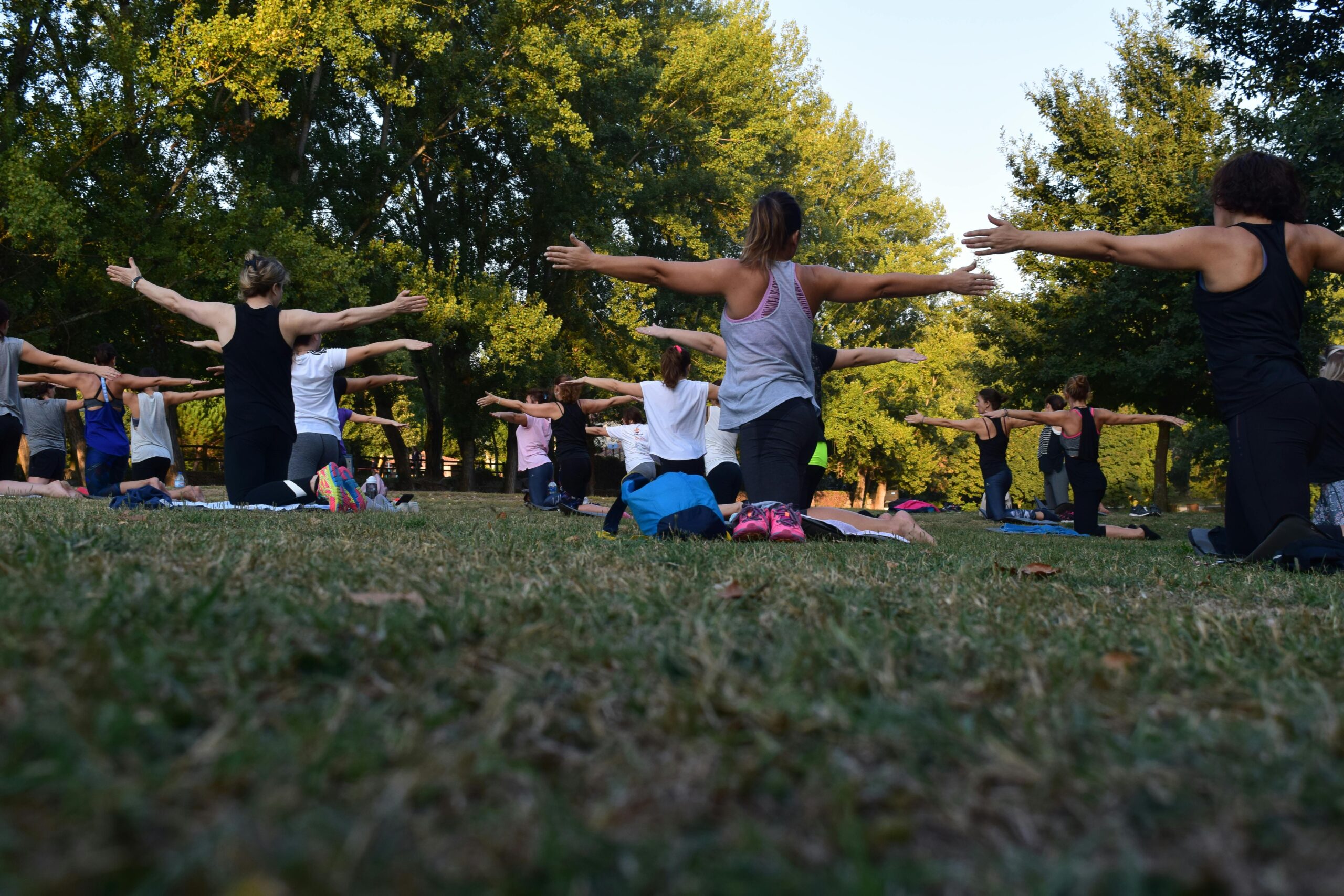As temperatures drop, it’s essential to focus on wellness and rejuvenation in colder months to maintain your health and well-being.
As the weather starts to cool and the days get shorter, it’s the perfect time for a seasonal reset. Welcome back to Chasing Brighter, where we’re continuing our October theme of wellness. In our latest podcast episode, we’re diving into how to rejuvenate and prepare for the colder months, a crucial time to focus on self-care and wellness.
For many of us, the shift from the warmer to colder months requires a recalibration of our daily routines and self-care practices. This blog post will walk you through tips for rejuvenating your body and mind while preparing for the changes that fall and winter bring. We’ll cover everything from boosting immunity to improving fitness and adjusting your skincare routine.
Why Rejuvenation Matters as the Seasons Change
Rejuvenation is the process of restoring energy, vitality, and mental clarity. With the colder months approaching, it’s essential to prepare our bodies and minds for the changes ahead—shorter days, cooler temperatures, and the holiday rush. Rejuvenation involves everything from getting enough rest to engaging in self-care practices like mindfulness, fitness, and skincare. It helps us stay balanced, resilient, and ready for whatever the winter season throws our way.
So how can we focus on rejuvenation and create routines that support our health and wellness this time of year? Let’s dive in.
1. Boost Your Immunity with Proper Nutrition
One of the best ways to rejuvenate your body and prepare for colder weather is by focusing on immune-boosting foods. As the availability of fresh, seasonal produce shifts, it’s important to adapt your diet to ensure you’re still getting the nutrients your body needs. Here are some key foods to add to your fall and winter meal plans:
- Citrus fruits: Rich in Vitamin C, citrus fruits like oranges, grapefruits, and lemons help strengthen the immune system.
- Ginger and turmeric: Known for their anti-inflammatory and antioxidant properties, these spices can aid digestion and enhance immune function.
- Leafy greens: Spinach, kale, and other greens are packed with vitamins A and C, supporting energy levels and immunity.
- Nuts and seeds: Almonds and sunflower seeds provide healthy fats and Vitamin E, which are great for immune health and energy.
- Yogurt and fermented foods: Foods like kefir, sauerkraut, and kimchi are high in probiotics, which help maintain gut health and boost immunity.
- Sweet potatoes and squash: Rich in beta carotene, these starchy vegetables provide steady energy and are perfect for fall meals.
- Green tea: A well-known source of antioxidants, green tea boosts immune function and provides a gentle energy lift.
11 Foods That Boost Your Immune System (clevelandclinic.org)
Incorporating these nutrient-dense foods into your meals can help protect your body from seasonal fatigue and keep your energy levels steady during the colder months.
2. Maintain a Regular Fitness Routine
Staying active during the colder months can be a challenge, especially as the days grow shorter and temperatures drop. But regular exercise is key to maintaining both physical and mental health and wellness. Whether you love going for long walks or hitting the gym, movement should be a priority this season.
Here are some fitness tips to keep you motivated:
- Get your 10,000 steps a day: Walking is an easy way to stay active, even if it’s just a 10-15 minute walk around your neighborhood.
- Strength training: Lifting weights helps maintain muscle mass and keeps your metabolism steady, especially during colder months when you might be more sedentary.
- Cold-weather gear: Invest in warm, comfortable clothing so you can continue outdoor activities, even in chillier weather. Check out Amazon’s recommendations.
For those days when it’s just too cold to head outside, consider at-home workout options like YouTube fitness videos, online workout memberships, or using home gym equipment like a treadmill or stationary bike.
3. Focus on Hydration
Staying hydrated is just as important in the fall and winter as it is in the summer. Our bodies often need more water than we realize, especially when the air is drier due to indoor heating. Aim for about 2.7 liters of water a day for women (around 91 ounces) to keep your skin hydrated, boost your energy, and support your immune system. Water: How much should you drink every day?
An easy way to track your water intake is by using a large water bottle and refilling it throughout the day. For added hydration benefits, you can also incorporate water-rich foods like fruits and vegetables into your diet.
4. Update Your Skincare Routine
Cold weather often means dry, irritated skin. As the humidity levels drop, it’s important to switch to more hydrating and protective skincare products. Here are some tips to keep your skin glowing all winter long:
- Use a thicker moisturizer: As temperatures drop, opt for heavier creams to lock in moisture and prevent dry skin.
- Stay away from harsh cleansers: Switch to gentler, non-toxic skincare products to avoid stripping your skin of natural oils.
- Don’t forget sunscreen: Even in winter, UV rays can damage your skin, so keep sunscreen as part of your daily routine.
Look for skincare products that are non-toxic and free from harmful chemicals. Brands that focus on clean beauty can help protect your skin without exposing you to unnecessary toxins. Our favorite brands: Honest Skincare, Ursa Major, Mad Hippie.
5. Create a Sleep Routine
Sleep is one of the most important aspects of rejuvenation. With the days getting shorter, it’s a great time to prioritize rest and create a bedtime routine that ensures you’re getting enough sleep. Aim for at least 7-8 hours a night to allow your body to fully recover and recharge.
Here are some tips for better sleep hygiene:
- Turn off screens: Blue light from phones, tablets, and TVs can disrupt your natural sleep cycle. Try turning off screens at least 30 minutes before bed.
- Stick to a routine: Going to bed and waking up at the same time every day can help regulate your body’s internal clock.
- Create a relaxing bedtime ritual: Whether it’s reading, meditating, or doing some light stretches, winding down with a calming activity can signal to your body that it’s time to sleep.
6. Manage Stress with Mindfulness and Relaxation
Stress levels tend to rise during the colder months, especially as we head into the holiday season. Practicing mindfulness and stress-reduction techniques can help you stay calm and centered during these busy times.
Here are a few ways to incorporate mindfulness into your daily routine:
- Meditation: Even just 5-10 minutes a day can help reduce stress and improve emotional resilience.
- Journaling: Writing down your thoughts and feelings can be a great way to clear your mind and process emotions.
- Breathing exercises: Simple breathing techniques can help you relax and reduce anxiety, even in stressful moments.
Mindfulness Resources:
Prepare for Winter with Intention
As you look ahead to the colder months, take time to reflect on what you want the season to bring. Setting intentions can help you stay focused on what matters most to you, whether it’s spending more time with family, prioritizing self-care, or pursuing personal goals.
At Chasing Brighter, we believe that wellness is a holistic journey. By focusing on nutrition, fitness, hydration, skincare, and mindfulness, you can set yourself up for a successful and rejuvenating winter season.



